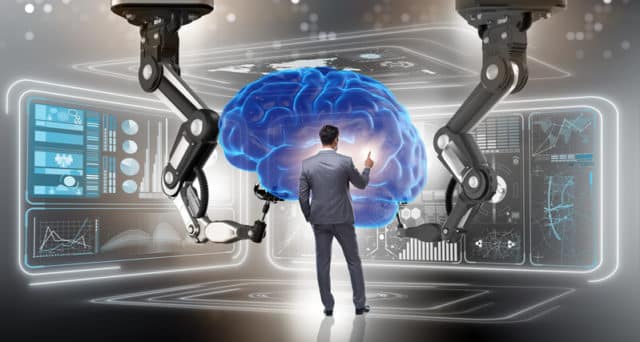 Watson Health is a business division of IBM that uses technology to analyze data and improve public health. One way they are trying to improve health with this technology is by studying cancer. At the yearly meeting for the American Society for Clinical Oncology, IBM Watson Health presented 22 new studies that show how technology and artificial intelligence are helping to improve cancer care.
Watson Health is a business division of IBM that uses technology to analyze data and improve public health. One way they are trying to improve health with this technology is by studying cancer. At the yearly meeting for the American Society for Clinical Oncology, IBM Watson Health presented 22 new studies that show how technology and artificial intelligence are helping to improve cancer care.
Nathan Levitan, the Chief Medical Officer at IBM Watson Health, says that artificial intelligence is starting to have a real impact on the way that doctors treat cancer. According to Levitan, artificial intelligence is helping doctors make more informed decisions by giving them more information about the tumors than the doctors would normally have. He also says the technology is “helping to improve patient satisfaction by delivering a comprehensive view of treatment options.”
 The new studies show how Watson Health’s work is improving both the patient’s and the doctor’s experience throughout the process of treating cancer. In the early days of using artificial intelligence to help make decisions about healthcare, these studies seem to say that this technology will have an important role in personalizing cancer treatment for each patient.
The new studies show how Watson Health’s work is improving both the patient’s and the doctor’s experience throughout the process of treating cancer. In the early days of using artificial intelligence to help make decisions about healthcare, these studies seem to say that this technology will have an important role in personalizing cancer treatment for each patient.
There are three key findings from the studies.
1. Watson for Oncology Informs Clinical Decision Changes in 13.6% of Cases Reviewed by Multidisciplinary Tumor Board
In one study performed with 1000 cancer patients in India, the tumor board that makes decisions about patient treatment changed its decision in 13.6% of cases based on the recommendation of IBM Watson Health. The board said they changed their decision in those cases for any of three reasons. First, Watson gave evidence of a more effective, newer treatment. Second, Watson found an alternative treatment that was more personalized for that patient. Third, Watson was able to offer more information about that patient than the board previously had.
This study holds a lot of promise for making decisions easier for doctors and lessening the burden for them. This is important because many doctors are facing “burnout” from the long hours and difficult decisions they make every day. Also, if all physicians use the same technology, cancer care can be more standardized with less difference in individual results.
2. Watson for Genomics Surfaces New Insights for Oncologists Treating Patients with Hematological Malignancies
In a study at Hallym University College of Medicine, 54 patients with either a tumor or cancer of the blood were tested to see which treatment options were available to each patient. The artificial intelligence technology found 33% more places in the body with cancer that could be treated or cured than experts who looked at the cancer manually without the technology. This suggests that experts could be helped in a significant way by using the Watson Health technology.
3. Watson for Oncology Improves Cancer Patient Confidence
Doctors at the at Beijing Chaoyang Integrative Medicine Emergency Medical Center found that incorporating the Watson Health technology into a patient’s decision making process helped the patients better understand their disease and the available treatments. As a result, the patients were more confident in their doctors and their treatment.
Watson Health is Always Looking For Ways to Improve
 Watson is always looking for ways to improve and offer doctors help to make treatments better and more effective. Another way they are doing this is by developing technology that finds relevant health journals and publications for doctors so they have to spend less time researching. This means doctors will be able to recommend the best treatments quicker and lessen the burden on themselves.
Watson is always looking for ways to improve and offer doctors help to make treatments better and more effective. Another way they are doing this is by developing technology that finds relevant health journals and publications for doctors so they have to spend less time researching. This means doctors will be able to recommend the best treatments quicker and lessen the burden on themselves.
Watson Health is being used worldwide. To help support the doctors in charge of cancer treatment, Watson gets feedback from all the areas that it supports so it can identify what the company needs to improve. Levitan says that Watson Health was created to fight against public health challenges, and that’s exactly what they are doing through the use of data and artificial intelligence.


























